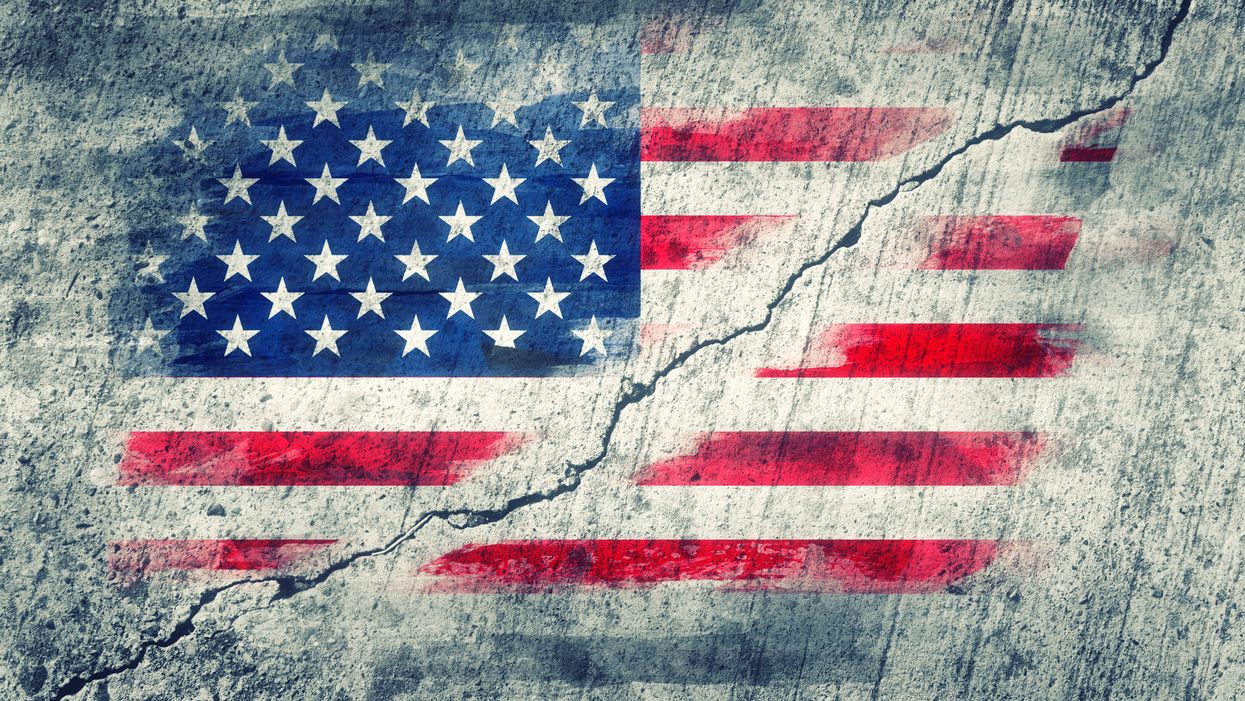There's fresh evidence that anxiety about the many ways American democracy is malfunctioning remains very high in the national consciousness.
More than a third of Americans now view the government itself as the top problem in the United States, the Gallup survey out Monday finds. Those results offer all candidates now running for office a clear rationale for elevating plans to "fix the system" closer to the top of their policy agendas.
So far, however, proposals for reforming democracy have received minimal attention in the 2020 campaign — neither in the presidential race that's been underway all year nor in the hundreds of congressional and state legislative contests just starting to gel.
President Trump, whose upset victory was spurred in part by impassioned promises to "drain the swamp," essentially never mentions that aspiration any more. And while all the top-tier Democratic candidates have unveiled proposals for tackling some of the system's perceived shortcomings, talk about them has been next to nonexistent in their stump speeches or in the first four nationally televised debates.
To the extent Democrats have talked of healing democracy's wounds, it has been to profess broad agreement about the corrupting influence of big money on policymaking and the dangers of Trump flouting democratic norms and upsetting the balance of powers. There's been minimal discussion of their concrete proposals for regulating campaign finance or raising Congress and the courts back on par with the executive branch — and even less talk about ways to bolster confidence in American elections, expand voting rights, ease access to the ballot box or get politicians out of the business of choosing their own constituents.
There's ample reason for that to change in light of Gallup's latest findings — which show that just 11 percent of Democrats and 26 percent of independents describe themselves as satisfied with the country's direction. And the number of Republicans professing satisfaction dropping sharply in the past month as well.
One big reason is a surge of anxiety that's almost surely a result of the House's launch of a move toward Trump's impeachment: 34 percent volunteered the government, poor leadership or politicians as the most important problem facing the country — up 11 percentage points since September and just a single point shy of the record, set this February after the end of the longest partial federal government shutdown in history.
The current 34 percent are broadly bipartisan: 41 percent of Democrats and 36 percent of Republicans, and each of those shares has jumped 13 points in a month. Independent are marginally more sanguine about the government: 27 percent say it's worry No. 1, an 8-point rise since summer ended.)
But the blame for the government's ills exposes a sharp partisan divide: Republicans mention Congress and political parties way more than Democrats, who cite the president and impeachment most often.
At least as worrisome for the country, however, is that the government-is-the-problem number has been high for a very long stretch.
Gallup has been tracking the public's views of the nation's most important problems for eight decades. In each month for the five years after the Great Recession started in 2008, economic-related issues topped the list volunteered by the voters. But the trend during the Trump administration is rivaling that for consistency. "Government," which takes in negative comments about leadership and politicians, has been the top problem in all but three of the Gallup's 34 soundings since January 2017. (Immigration topped the list the other times.)
Before a spike of 33 percent during the 2013 budget standoff between President Barack Obama and a divided Congress, the highest share of voters naming the government as America's biggest problem was 26 percent just before President Richard Nixon was forced to resign in the Watergate scandal.
The latest poll is based on a survey conducted Oct. 1-13 of 1,526 U.S. adults. The margin of error is 3 percentage points.




















Marco Rubio is the only adult left in the room